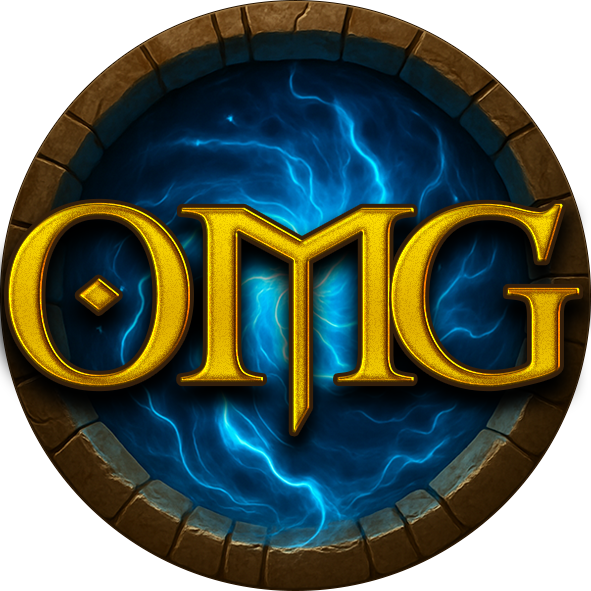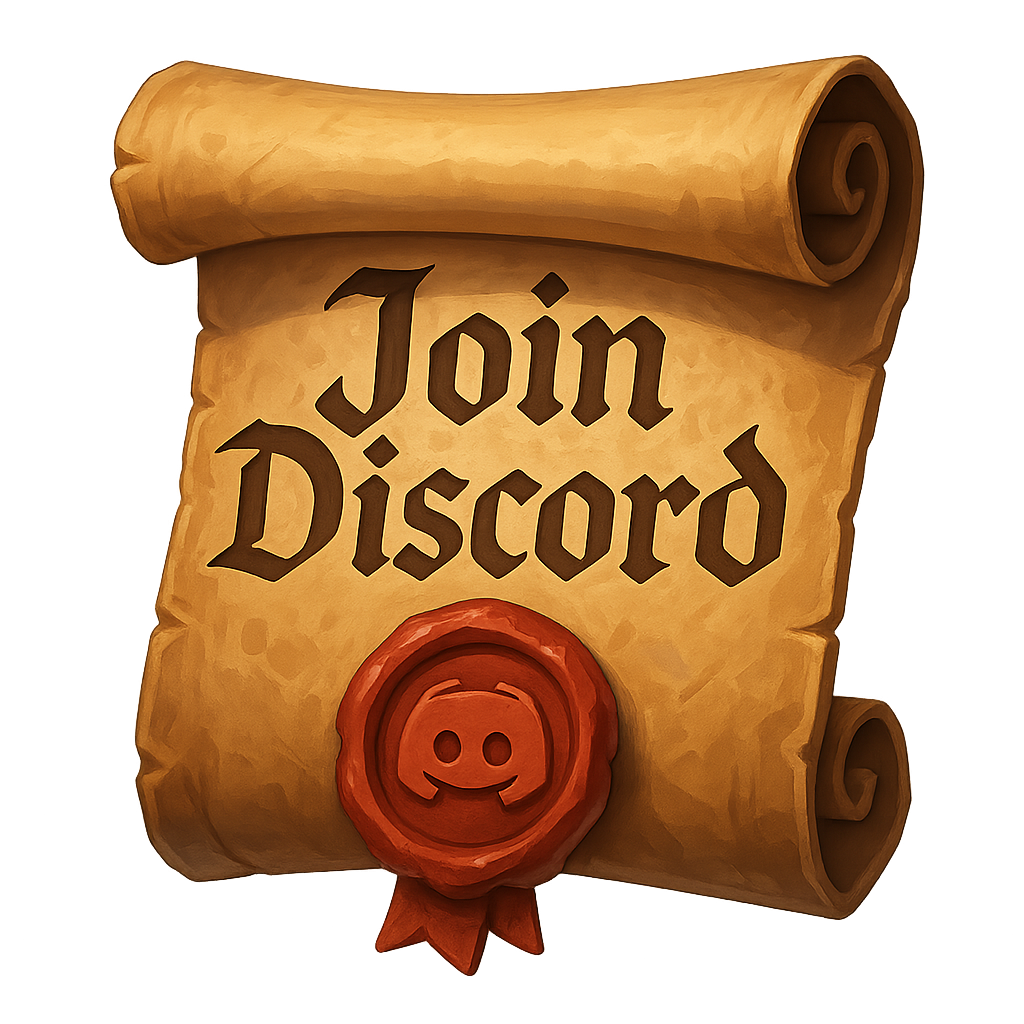OLD MANA GAME – KEYWORD GLOSSARY 0.8.3
- Old Mana Game

- Jul 4, 2025
- 5 min read
Updated: Jul 5, 2025

This glossary explains all core terms used in Old Mana Game. It is intended for use in the official rulebook, website, and card database.
CARD TYPES
Hero
Your leader card. Defines which Archetype cards are allowed in your deck. Starts with 30 Health and 9 Attack.
Archetype
A color-coded group such as War, Sorcery, Nature, etc. Determines which cards you can use (Abilities, Spells, Traps, Weapons, Armor).
Ally
Creature unit played onto the Party Lane. Unbound (no Archetype restriction).
Weapon
Equipment that grants effects or attack power. Played into the Equipment Lane. Max 7 equipped. Requires correct Archetype.
Armor
Passive defense equipment that grants Armor. Played into the Equipment Lane. Max 7 total Equipment cards allowed. Requires correct Archetype.
Ability
A general card type representing any active effect card. Abilities include Spells, Traps, Counters, and Zones. All Abilities are restricted by Archetype and follow timing rules depending on subtype.
Spell
An Ability with a direct and immediate effect. Always played face-up and resolved instantly.
Trap
A hidden Ability played face-down. Activates automatically when a trigger condition is met.
Counter
A reactive Ability used to interrupt or negate an opponent’s action. Usually played in response.
Zone
A persistent Ability card that enchants the field. Can be global or zonal, and affects game state over time.
GAMEPLAY & BOARD TERMS
Party Lane
The front-row battle line. Consists of 5 fixed positions: the center always holds your Hero, with two Ally slots to the left and right. Once an Ally is played into a slot, it remains there. All positioning grows outward from the center.
Equipment Lane
The back row for equippable cards like Weapons, Armor, and future Items. Limited to 7 total Equipment cards. All Equipment is arranged symmetrically from the center. If Equipment is lost, cards must shift toward the center.
Zonal
An effect targeting a specific lane or side of the board.
Global
An effect that impacts the entire field or both players.
Mana
The primary resource. At the start of your turn, draw 2 cards. You may choose to place a card from your hand into your Mana Pool, making it visible and available as resource. Instead of placing a card, you may retrieve a card from your Mana Pool or swap it. Mana has no upper limit.
Draw
Take a card from your deck.
Play
Put a card from your hand into play.
Summon
Put a unit directly into play, often without paying its cost.
Revive
Return a card from your Graveyard to your hand or to the board.
Restore
Heal lost Health.
Bounce
Return a card from the field to its owner’s hand.
Reap
Gain a bonus (e.g., Mana or card draw) after a successful kill.
Steal
Take control of an enemy card or resource.
Fatigue
Penalty or damage when drawing from an empty deck.
Lock
Temporarily disable a card, zone, or player action.
Trigger
A condition that causes an effect to activate (e.g., "on death", "when attacked").
Reveal
Turn a hidden (face-down) card face-up.
Destroy / Kill
Remove a card from play and send it to the Graveyard.
Silence
Remove all active effects from a card.
Exhaust
A card that has been used (e.g., after attacking) and cannot act again this turn.
Instant
A card or effect that can be played at any time, even during the opponent’s turn.
COMBAT & STATUS EFFECTS
Attack
The damage a card deals in combat.
Health
The amount of damage a card can take before it dies.
Freeze
The card skips its next action.
Stun
Prevents the unit from attacking, using Hero Abilities, or performing any active combat action. Similar to Freeze but often applied thematically through physical or mental interruption.
Burn
Deals 1 damage at the end of your opponent's turn. The number after Burn defines the duration in turns. Burn does not stack; reapplying Burn refreshes its duration.
Poison
Deals 1 damage at the start of your opponent's turn for 3 turns. Applying Poison again increases the damage by 1 and resets the duration to 3 turns. Poison stacks are global and can spread to enemy targets.
Root
Prevents the card from dealing melee damage. Ranged and non-melee effects still function.
Stealth
The card cannot be targeted directly until it takes an action.
Camouflage
The card must be targeted multiple times before it can be hit. For example, Camouflage (2) means the third attack will connect.
Tank
Forces enemies to target this card first when attacking.
Shield
Absorbs the next instance of incoming damage or effect, then breaks.
Block
Reduces incoming damage by the stated amount. For example, Block (4) absorbs 4 damage.
Armor
Reduces incoming damage by a fixed amount.
Deal Damage
A generic term describing any effect that reduces Health directly.
Double Strike
This unit deals damage twice during a single attack.
DECKBUILDING & STRUCTURE
Archetype Requirement
Each deck must include at least 25 cards (including the Hero) that match the Hero’s Archetype. These include Abilities, Weapons, Armor, Traps, and other Heroes – Allies. This ensures strategic identity and prevents fully neutral decks.
Singleton
Only one copy of each card allowed per deck.
Deck
Your 50-card draw library, including your 1 Hero.
Graveyard
Where used, destroyed, or spent cards go.
Board
The entire battlefield, including all Party and Equipment Lanes.
Mana Pool
Visible zone holding cards converted into Mana.
Slot
Equipment position (Mainhand, Offhand, Armor, Item, etc.).
Turn
One player’s full round (draw, play, combat, end).
Battle Phase
The phase where Allies attack enemies or the opponent’s Hero.
Hand Size Limit
You may hold up to 10 cards in your hand. Excess cards must be discarded at end of turn.
Overcharge
Using more Mana than you currently have access to, often with penalties.
RARITY RULES
Common / Rare / Epic / Legendary
Each card has one of four rarities that indicate its drop rate and general power level. These are independent of Elite status or special variants.
Legendary
The highest rarity tier. You may include up to 4 Legendary cards in your deck.
Elite
Elite is an additional attribute that can appear on any card, regardless of its rarity. It typically indicates that the card is lore-bound, named, or part of a unique set. Elites are often visually distinct and may be tied to specific storylines, cycles, or characters.
Full Art
A visual variant where the card art extends to the full card frame. Available across all rarities.
Foil
A cosmetic version with a shimmering or metallic effect. Can apply to any card regardless of rarity or type.
Alternate Art
A unique version of a card with different artwork. Alternate Arts are often used for promo releases, special editions, or elite characters.
This document is based on Old Mana Game version 0.8.4 and is subject to change. All mechanics, terminology, and rules listed here are still in development and may be revised at any time.







Comments